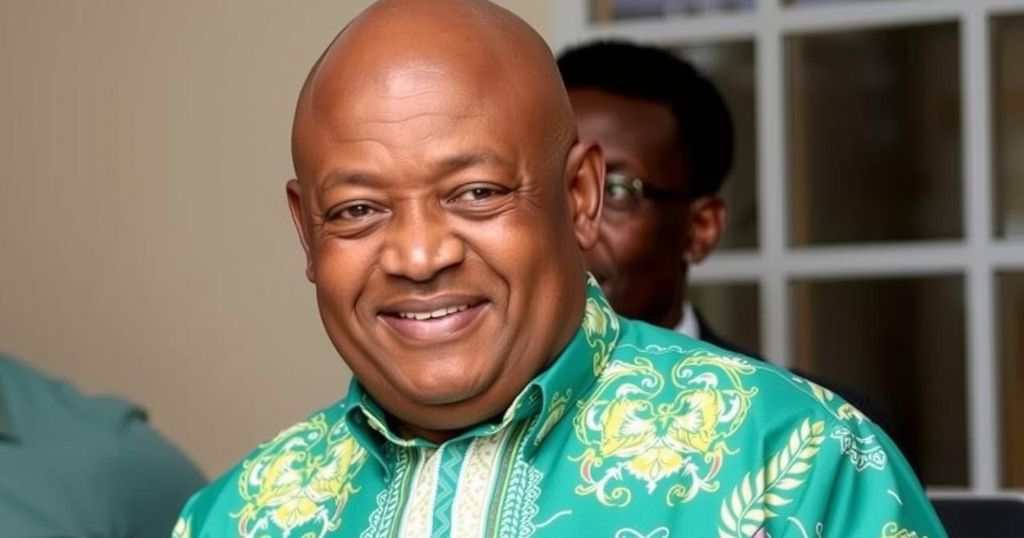Ghana’s former President John Dramani Mahama is set to return to power after Vice President Mahamudu Bawumia conceded the recent election. Voter frustration over economic management spurred Mahama’s victory. He pledged to rejuvenate the country, appealing particularly to younger citizens. Celebrations erupted as his party, the NDC, also secured a parliamentary majority.
Former President of Ghana, John Dramani Mahama, is poised to regain office following the concession of defeat by his rival, Vice President Mahamudu Bawumia, in the recent presidential election. Bawumia publicly acknowledged the electorate’s desire for change during a press conference on Sunday, extending his congratulations to Mahama, who served as president from July 2012 to January 2017. Mahama celebrated his victory, deeming it as ’emphatic,’ and vowed to revitalize the nation, particularly addressing the grave economic challenges facing Ghana.
The election unfolded amid significant public dissatisfaction regarding the ruling party’s economic management. During the campaign, Mahama appealed strongly to younger voters, promising to bring a fresh perspective to governance and to ameliorate the pressing economic difficulties. His National Democratic Congress (NDC) party also secured a parliamentary majority, signaling a broader shift in the political landscape.
Celebrations among Mahama’s supporters erupted across various cities, notably in Accra, where jubilant crowds donned the party’s colors and participated in spirited festivities. This election serves as a critical examination of democratic resilience in West Africa at a time when the region has witnessed extremist violence and unsettling political shifts.
The outgoing ruling New Patriotic Party (NPP) faced increasing scrutiny over its economic strategies, prompting analysts to view Mahama’s election as part of a larger global trend where opposition parties increasingly succeed against entrenched incumbency. Jude Agbemava, a political analyst, underscored the urgency for Mahama to address Ghana’s faltering economy, which he believes is central to the electorate’s decision-making. The discontent amid voters revolved around both economic conditions and governance styles.
Ghana’s political environment has been shaped by recent electoral contests characterized by increasing discontentment toward ruling parties, particularly in times of economic distress. The current election served as a referendum on the ruling party’s ability to handle dire economic circumstances, with a significant focus on the cost-of-living crisis. As the nation faces social and political pressures similar to those seen globally, the dynamics of this election reflected not only a local desire for change but also echoed broader patterns wherein established parties are often supplanted by opposition candidates. Mahama’s return to the presidency may herald a pivotal shift in Ghana’s approach to governance and economic policy.
John Dramani Mahama’s anticipated return to the presidency signifies a noteworthy evolution in Ghana’s political landscape, driven largely by public dissatisfaction with the government’s economic management. His commitment to economic reform resonates with voters eager for change in a challenging environment. As the NDC gains both presidential and parliamentary seats, it remains to be seen how Mahama will address the critical economic issues facing the nation.
Original Source: www.detroitnews.com






